Russia celebrates victory in Second World War at Victory Day parade
Thousands of military personnel take part in the parade each year, which remains one of the most important days in Russia’s calendar.

Russia wrapped itself in patriotic pageantry on Thursday for Victory Day, a celebration of its defeat of Nazi Germany in the Second World War that President Vladimir Putin has turned into a pillar of his nearly quarter of a century in power and a justification for his move into Ukraine.
Even though few veterans of what Russia calls the Great Patriotic War are still alive 79 years after Berlin fell to the Red Army, the victory over Nazi Germany remains the most important and widely revered symbol of the country’s prowess and a key element of national identity.
Thursday’s festivities across Russia, led by Mr Putin who this week began his fifth term in office, recall that wartime sacrifice in what has become its most important secular holiday.
As battalions marched by and military hardware – both old and new – rumbled over the cobblestones, the sky cleared briefly to allow a flyby of warplanes, some of which trailed smoke in the white, red and blue of the Russian flag.
Mr Putin hailed the troops fighting in Ukraine as “our heroes” for their courage, resilience and self-denial, adding that “all of Russia is with you”.
He accused the West of “fuelling regional conflicts, inter-ethnic and inter-religious strife and trying to contain sovereign and independent centres of global development”.
Amid tensions with Washington over Ukraine soaring to their highest level since the Cold War, Mr Putin issued another stark reminder of Moscow’s nuclear might.
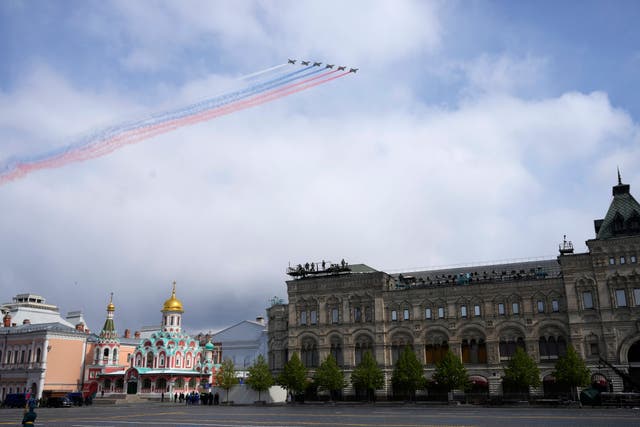
“Our strategic forces are in combat readiness.”
Nuclear-capable Yars intercontinental ballistic missiles were pulled across Red Square, underscoring his message.
The Soviet Union lost about 27 million people in the war, an estimate that many historians consider conservative, scarring virtually every family.
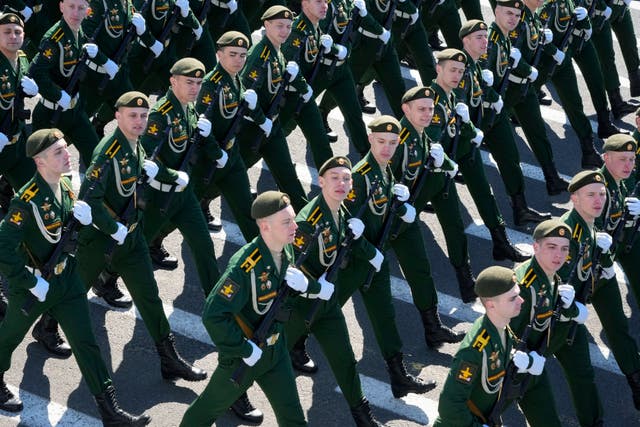
The UK, US, France and other allies mark the end of the war in Europe on May 8.
The immense suffering and sacrifice in cities like Stalingrad, Kursk and Mr Putin’s native Leningrad — now St Petersburg — still serve as a powerful symbol of the country’s ability to prevail against seemingly overwhelming challenges.
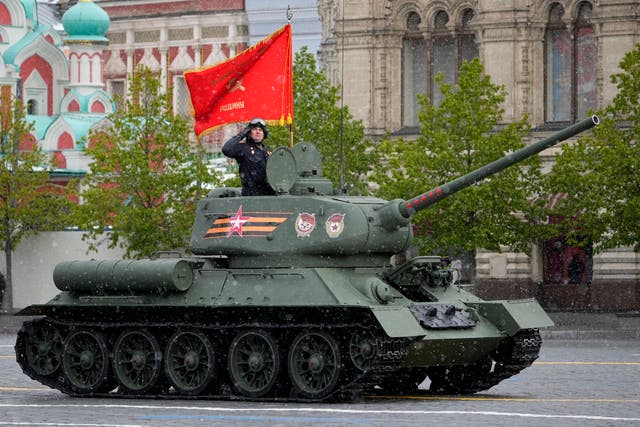
Columns of tanks and missiles roll across Red Square and squadrons of fighter jets roar overhead as medal-bedecked veterans join him to review the parade.
Many wear the black-and-orange St George’s ribbon that is traditionally associated with Victory Day.
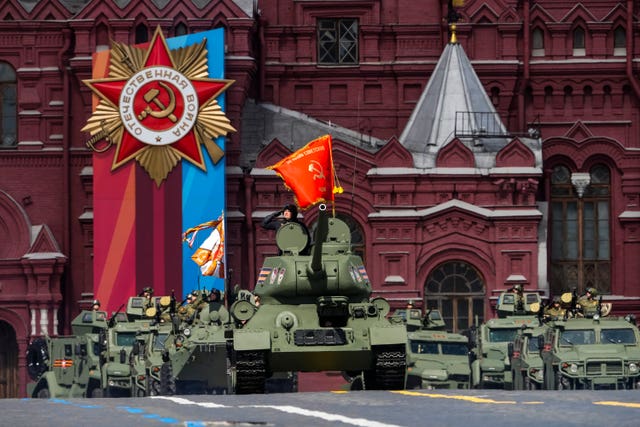
Mr Putin, 71, talks frequently about his family history, sharing memories of his father, who fought on the front during the Nazi siege of the city and was badly wounded.
As Mr Putin tells it, his father, also named Vladimir, came home from a military hospital during the war to see workers trying to take away his wife, Maria, who had been declared dead of starvation.
But the elder Mr Putin did not believe she had died — saying she had only lost consciousness, weak with hunger.
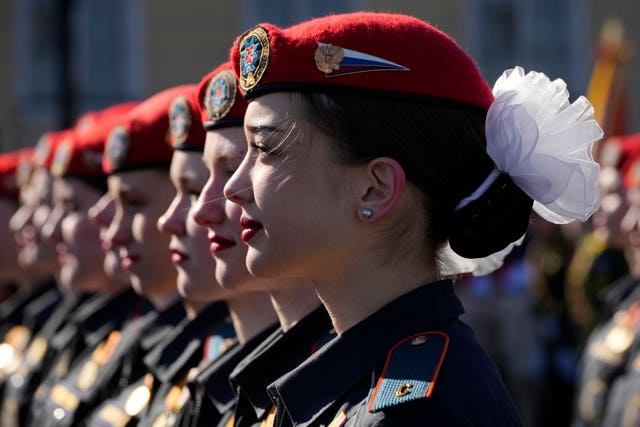
For several years, Mr Putin carried a photo of his father in Victory Day marches — as did others honouring relatives who were war veterans — in what was called the “Immortal Regiment”.
Those demonstrations were suspended during the coronavirus pandemic and then again amid security concerns after the start of the fighting in Ukraine.
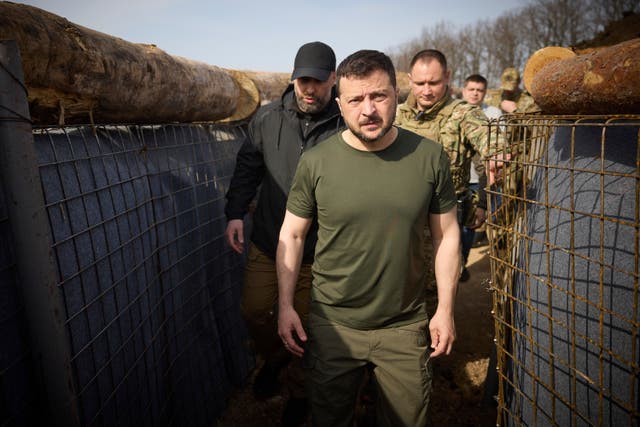
When he sent troops into Ukraine on February 24 2022, Mr Putin evoked the Second World War in seeking to justify his actions that Kyiv and its Western allies denounced as an unprovoked war of aggression.
Mr Putin cited the “denazification” of Ukraine as a main goal of Moscow, falsely describing the government of Ukrainian President Volodymyr Zelensky, who is Jewish and lost relatives in the Holocaust, as neo-Nazis.
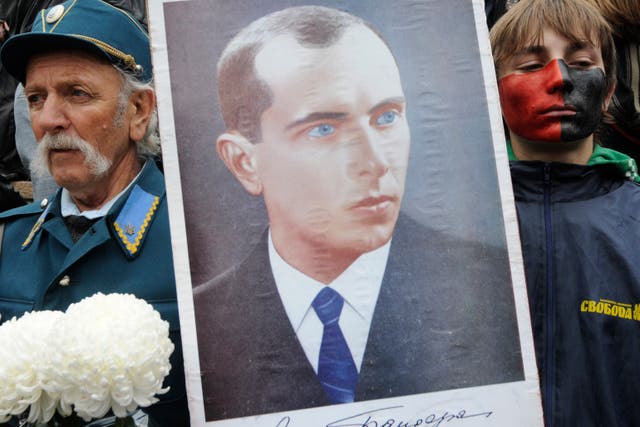
He regularly made unfounded references to Ukrainian nationalist figures such as Stepan Bandera, who was killed by a Soviet spy in Munich in 1959, as an underlying justification for the Russian military action in Ukraine.
Many observers see Mr Putin’s focus on the Second World War as part of his efforts to revive the USSR’s clout and prestige and his reliance on Soviet practices.
“It’s the continuous self-identification with the USSR as the victor of Nazism and the lack of any other strong legitimacy that forced the Kremlin to declare ‘denazification’ as the goal of the war,” Nikolay Epplee said in a commentary for Carnegie Russia Eurasia Centre.
The Russian leadership, he said, has “locked itself up in a worldview limited by the Soviet past”.





